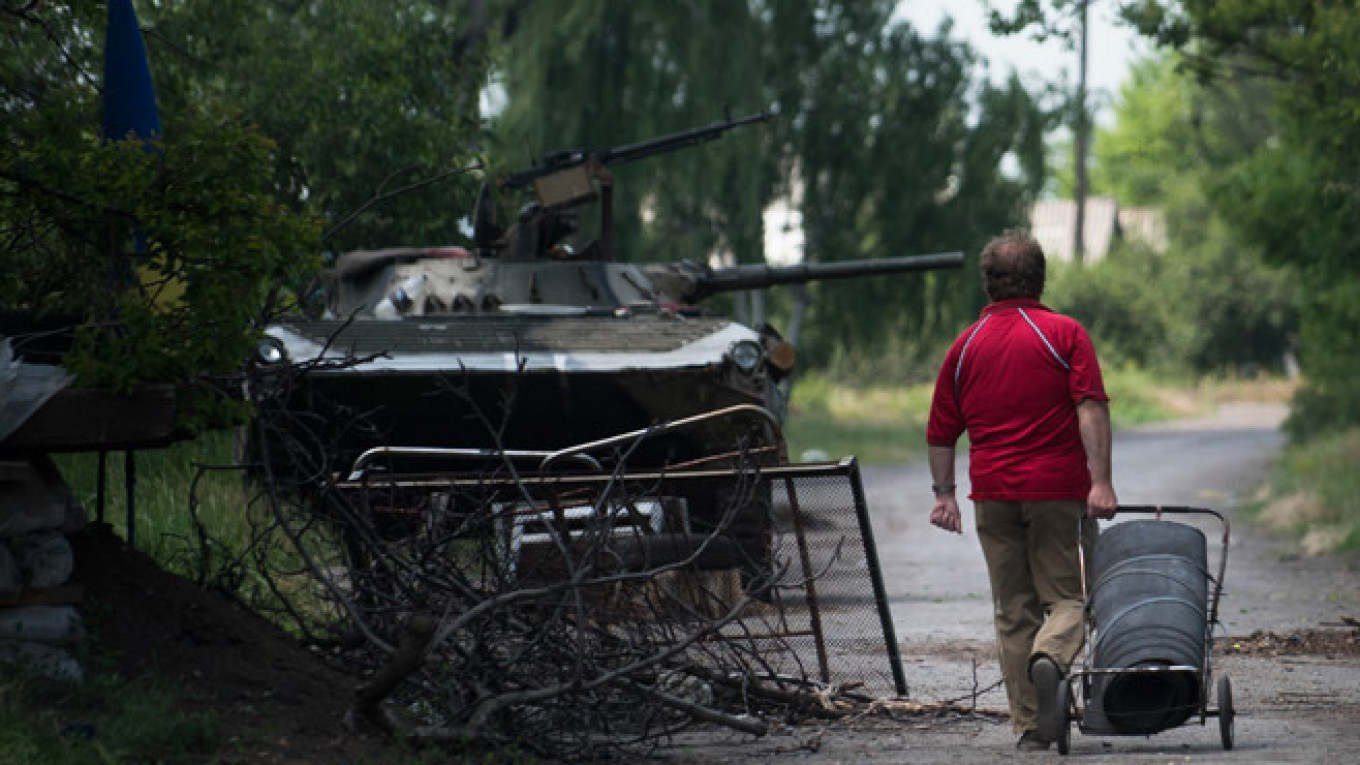With hundreds of thousands of people having been displaced by fighting in eastern Ukraine, Russia recorded the world's highest number of asylum applications last year, the United Nations said in a report published Thursday.
A total of 274,700 applications for asylum and refugee status were recorded by Russia in 2014, according to the UN. That is over 100,000 more than Germany, the country in second place in the world, and above traditional high scorers the United States, Turkey and Sweden.
"Close to 99 percent of claims in the Russian Federation were lodged by Ukrainians," the UN Refugee Agency said in "World at War," a report on human displacement in 2014.
Civilians began fleeing violence in the Donetsk and Luhansk regions of eastern Ukraine last spring when pro-Russian rebels launched an insurrection against the new, pro-Western regime in Kiev.
While more than 800,000 people have been internally displaced inside Ukraine, by far the biggest foreign recipient of Ukrainian refugees has been Russia.
"The first large-scale armed conflict on European soil since the end of the Balkan wars was another major driver of displacement across the region. Fighting in eastern Ukraine led the total number of refugees in the Russian Federation to swell to 231,800 by year end, up from 3,400 only 12 months earlier," the UN said.
Russia received 94 percent of the refugees from Ukraine, with 2,700 asylum claims from Ukrainians logged in Germany, 2,100 in Poland, 2,100 in Italy and 1,400 in France, according to the UN. In total, Ukrainians were recorded as having sought asylum in 67 countries around the globe, filing upward of 288,600 claims, a figure representing about one-fifth of asylum applications worldwide, the report said.
One of the reasons for the dramatic increase in asylum applications in Russia is likely to have been a simplified process introduced last year by the authorities as the flow of refugees intensified because of escalating fighting.
Under the new rules, asylum requests are processed on behalf of groups, not individuals, and they take up to three days to complete, rather than the three months previously required. Over 90 percent of the applications in Russia were granted, according to the UN.
Initially, many Ukrainian refugees entering Russia were concentrated in the regions bordering Ukraine, including the Rostov and Belgorod regions. But as the inflow grew, processing centers dispatched refugees to other parts of the country. About 1,500 refugees were sent to the Far East and 12,500 to Siberia, the Kommersant newspaper reported December citing official data.
Information on refugees has been repeatedly inflated by Russian officials, apparently seeking to gain the upper hand in an information war. Ukrainian officials maintain thousands of refugees from the fighting left eastern Ukraine for Russia, only to cross back into Kiev-controlled Ukraine.
Russian Foreign Minister Sergei Lavrov said earlier this month that about a million Ukrainian refugees had arrived in Russian over the last year, state news agency RIA Novosti reported.
Contact the author at [email protected]
A Message from The Moscow Times:
Dear readers,
We are facing unprecedented challenges. Russia's Prosecutor General's Office has designated The Moscow Times as an "undesirable" organization, criminalizing our work and putting our staff at risk of prosecution. This follows our earlier unjust labeling as a "foreign agent."
These actions are direct attempts to silence independent journalism in Russia. The authorities claim our work "discredits the decisions of the Russian leadership." We see things differently: we strive to provide accurate, unbiased reporting on Russia.
We, the journalists of The Moscow Times, refuse to be silenced. But to continue our work, we need your help.
Your support, no matter how small, makes a world of difference. If you can, please support us monthly starting from just $2. It's quick to set up, and every contribution makes a significant impact.
By supporting The Moscow Times, you're defending open, independent journalism in the face of repression. Thank you for standing with us.
Remind me later.







